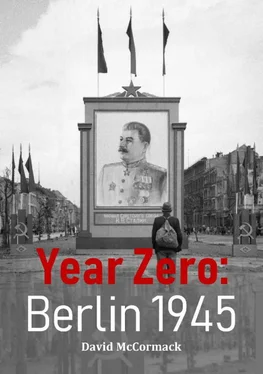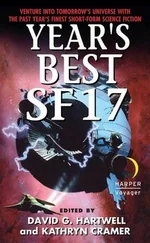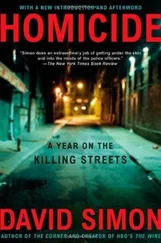The hotel opened on 23 October 1907. The Kaiser was a regular visitor. The Foreign Office used the hotel on a regular basis as an unofficial meeting place. Notable visitors before the outbreak of war in 1914 included Tsar Nicholas II of Russia, the inventor Thomas Edison, industrialist and founder of the Ford Motor Company Henry Ford, and the business magnate and philanthropist John D. Rockefeller. After the death of Lorenz Adlon in a traffic accident close to the Brandenburg Gate in late 1918, the proprietorship of the hotel passed to his son Louis.
During the ‘Roaring Twenties’, the hotel was frequented by such luminaries as film stars Louise Brooks, Mary Pickford and Marlene Dietrich, celebrated operatic tenor Enrico Caruso, singer and entertainer Josephine Baker and writer Thomas Mann. Following Hitler’s rise to power in January 1933, the hotel continued to be a popular meeting place, particularly for Foreign Ministry officials. Following the first air-raids on Berlin by the RAF in 1940, huge underground shelters were constructed, along with a protective wall which extended upwards towards the first floor balconies. Louis Adlon lamented the graceless vista which the protective wall had produced:
It lent the building, of which the graceful architecture had been so essential a part of the Unter den Linden and Berlin, a strangely remote and repellent aspect, as though, from being a hotel which had become world-famous for its warmth and hospitality, it was now a fortress where no one might enter.
By some miracle, the ‘fortress’ was still standing and very much still in business following the conclusion of ‘Bomber Harris’ concentrated attack on the city between November 1943 and March 1944. Whilst much of Berlin had been battered and scarred by the protracted aerial bombardment, the Adlon continued to take in paying guests and provide facilities for Foreign Office staff.
On 2 February 1945, one of the most interesting incidents in the Adlon’s history took place. That morning, Major Johnny Dodge, who had been languishing in Sachsenhausen Concentration Camp along with fellow ‘Great Escapees’ Harry ‘Wings’ Day and Sydney Dowse was suddenly freed. Six weeks earlier, he had been summoned to appear before Dr Hans Thost and Dr Theodor Paeffgen of the SS intelligence service. Dr Thost had opened the conversation by asking, ‘How do you think the German and British people can get closer together?’ Dodge replied by saying that:
The British people are offended most by the fact that Germany has overrun small nations and that Austria, Czechoslovakia and Poland must be freed. Also that the Rhineland would have to be demilitarised. That all countries at present occupied by German forces would have to be evacuated of those forces… The persecution of the Jews would have to cease and that the German government would have to be reconstructed.
Both Dr Thost and Dr Paeffgen appeared to have been impressed by Dodge’s optimistic assessment of the situation. His underestimation of the Allies absolute detestation of the Nazi regime led Dr Thost to state that, ‘Germany wished to conclude an Armistice with the Western Allies and to be allowed a free hand to continue the fight against the Russians’. The meeting concluded with Dodge stating that he would be happy to directly convey any message that the German regime wished to send to the British government. As a cousin of the British Prime Minister, Dodge was well placed to deliver such a message. His captors had chosen well as Dodge’s innate optimism made him the ideal candidate.
Nothing further happened until the morning of Dodge’s release some six weeks later. He was driven through Berlin’s moonscape to a department store where he was given a set of civilian clothes. Following lunch at a Luftwaffe officers club, Dodge was driven to the Adlon Hotel where Dr Thost and Foreign Ministry interpreter Paul Otto Schmidt were already waiting for him. In room 403, Dodge was greeted by Schmidt who then wasted no time in opening the conversation by saying, ‘Major Dodge, you have escaped from almost every prison in Germany’. This somewhat clumsy opening remark naturally resulted in Dodge assuming a defensive posture. Sensing this, Schmidt quickly cut to the chase by explaining that the plan was to send him home so that he could speak with his ‘kinsman’ about the possibility of concluding an agreeable settlement with Germany. Dodge was to fly to Stockholm the following day with Dr Thost.
As a result of unexpected delays, Dodge and Dr Thost were delayed in Berlin for a week, during which time they travelled around the city by public transport. As Dodge had no capacity for learning foreign languages, their conversations were carried out entirely in English. In a newspaper article published in 1952, Dr Thost recalled how, ‘No one raised objection to our conversation in English, though some people may have possibly been surprised to hear English spoken in the worst bombed city in the world’. During the course of their excursions around the city, Dr Thost alluded to Dodge that both Hitler and Himmler were involved in the plan. It is doubtful that Hitler had ever heard of Dodge. However, it is possible that Himmler may well have been aware of, or had even sponsored the plan.
Meanwhile, the plan had changed, for they were now to head to Dresden. On 13 February Dodge and his chaperone were enjoying the evening show at the city’s Circus Sarrasani when the air-raid sirens brought about a mass exodus to the inadequate shelters which served as the populations only protection from Allied bombers. Dodge and Dr Thost were more fortunate than most in that they were able to take shelter in a bomb-proof bunker on the edge of the city. Having survived the devastating raid, Dodge and Dr Thost stayed in the home of Major Fritz von Alten for the next five days. They then continued their journey via Weimar, Regenstauf, Munich, Bad Tolz, Kempten, Bregenz, before finally reaching the Swiss frontier on 25 April.
The following morning, a guide escorted Dodge to the Swiss Customs Office at St Margarethen. He was then driven to the headquarters of the Swiss Intelligence Service in Bern where arrangements were made to fly him to England. After nearly five years in captivity, this brave officer finally came home on 28 April. By this time, the war was to all intents and purposes over. Events had since made the interesting proposition made at the Hotel Adlon back in February totally redundant. Dodge never did speak to his ‘kinsman’ about the interesting proposals made at the Hotel Adlon.
Chapter Five
Blonde Poison – Stella Goldschlag
As the Third Reich imploded in the spring of 1945, a young German-Jewish woman named Stella Goldschlag took shelter in the town of Liebenwalde. As SS troops from the Thomalla Battalion distributed ammunition to the local Volkssturm, they instructed them to conserve every round, ‘as if it’s your last piece of bread’. The hastily improvised defensive measures observed by Stella transformed her rustic retreat into a place of fevered activity. Indeed, the town had been in a state of turmoil for weeks. The impending attack by elements of Zhukov’s 1 stBelorussian Front caused panic, many fled westwards. Those few that remained included the elderly, the sick and the frightened. Stella too remained behind as she was three months pregnant. Caught between a rock and a hard place, she had no other alternative than to stay put. The Jewish underground in Berlin had already warned her that she would face retribution, and she was almost certainly on a Soviet list of wanted Nazi war criminals. Stella was no ordinary young woman, she had already gained notoriety as the ‘Blonde Poison’. During her two year career as a ‘catcher’ with the Gestapo she had personally been responsible for uncovering and handing over between 600–3000 underground Berlin Jews.
Читать дальше












